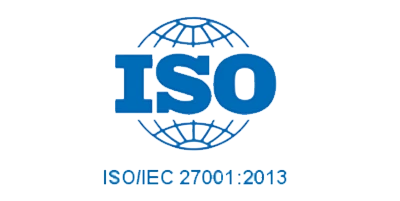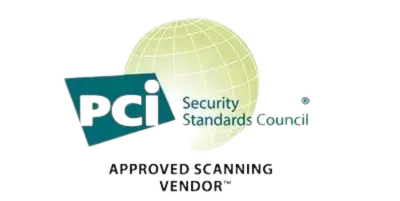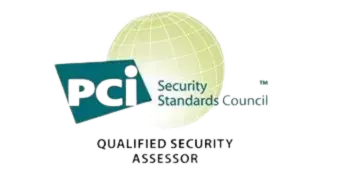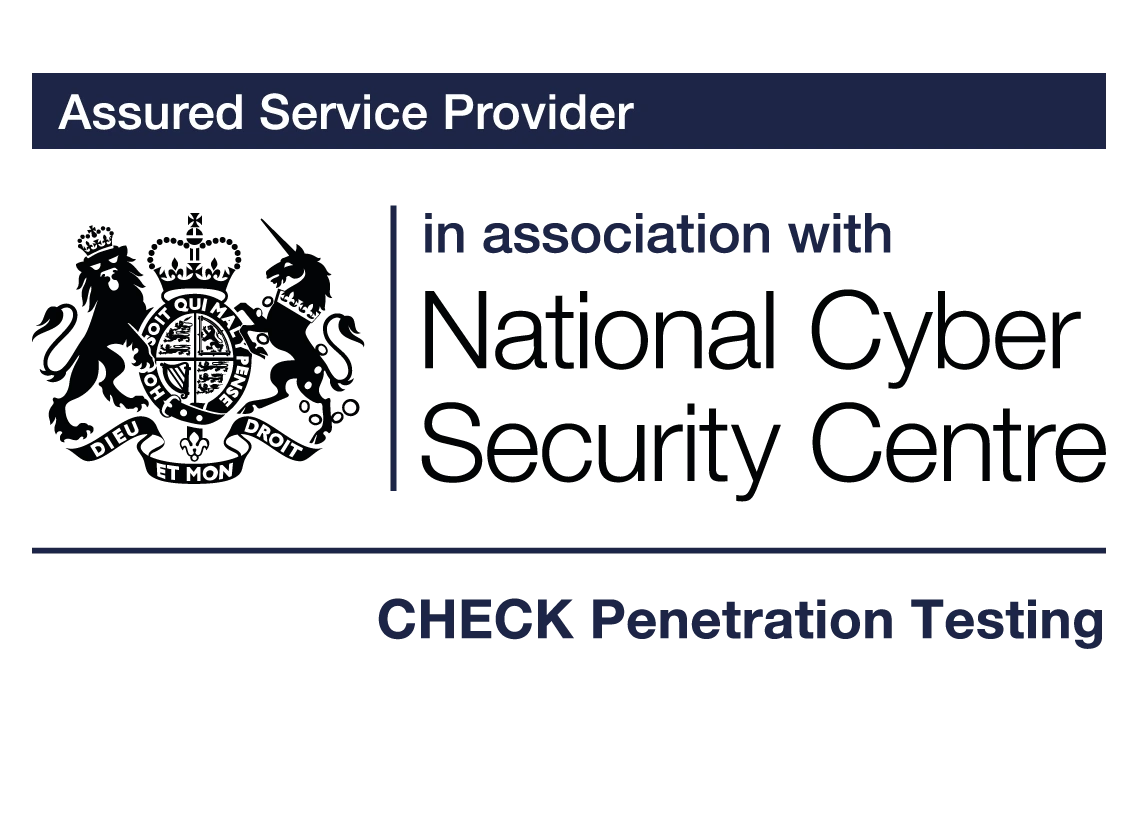Energy and Utilities Sector Cybersecurity: Confronting Digital Adversaries
Quick Introduction:
The energy and utilities sector forms the backbone of national infrastructure, and its cyber-security is a matter of national security. As this sector evolves with smart grids, digital meters, and IoT devices, the cyber-security challenges multiply. Threat actors recognize the potential chaos that disrupting energy and utility services can bring. Companies in this sector must protect against cyber espionage, ransomware attacks, and the exploitation of system vulnerabilities, all while maintaining uninterrupted service. The stakes are high, and the need for robust cyber-security is paramount.
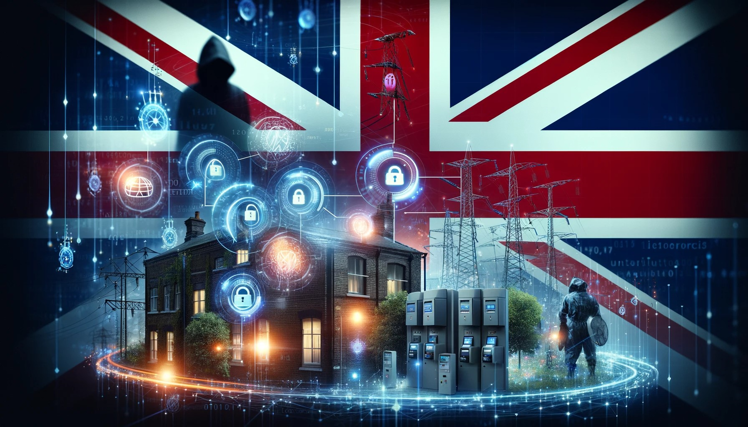
Cyber-security Regulations
In the UK, the Energy And Utilities sector must navigate a robust landscape of cyber-security regulations to protect its digital and physical assets. Compliance is not just about legal adherence but ensuring resilience against cyber threats.
GOVASSURE:
For energy and utility companies working with the UK government, GOVASSURE sets forth essential security standards for Critical National Infrastructure (CNI).
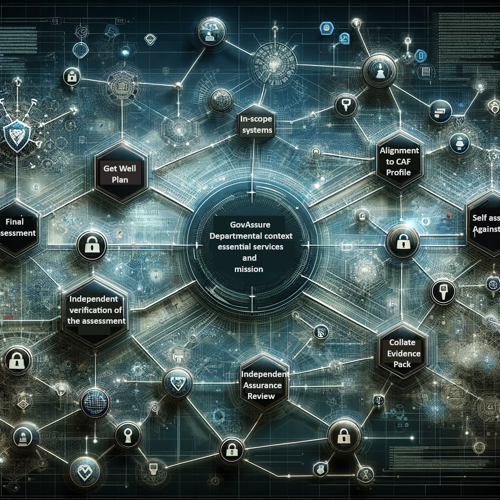
UK-GDPR: Prioritizing Data Privacy In Energy And Utility Providers
Personal data in the energy sector, such as customer billing information and usage patterns, require high-level protection. Companies must align their policies with GDPR and the Data Protection Act, establishing data protection as a core business principle. This alignment should be demonstrated through regular audits, employee training, and a clear data governance strategy.
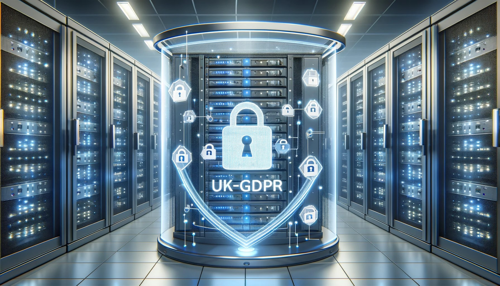
Compliance Steps:
- Understand the data protection principles set out by the UK-GDPR.
- Implement adequate measures to secure personal data, such as encryption and access control.
- Ensure that there are procedures in place to handle data subject rights requests.
- Maintain detailed records of data processing activities.
- Appoint a dedicated Data Protection Officer (DPO) to oversee compliance.
- Conduct Data Protection Impact Assessments (DPIAs) for high-risk processing.
- Foster a culture of data protection awareness across the organization.
PCI-DSS: Securing Cardholder Data
Energy and utility companies that process payment card information must adhere to PCI-DSS to protect against data breaches and ensure transaction security, an often overlooked but essential aspect of their operations.

NIST Framework
While voluntary, adopting the NIST Cyber-security Framework offers a comprehensive approach to managing cyber-security-related risk. The framework's tiers guide companies in aligning their cyber-security activities with their risk appetite, budget, and resources, allowing for a flexible and measurable strategy.
- NIST guidelines for supply chain risk management
- Energy and utilities suppliers are advised to include cyber-security criteria in the supplier selection process and to continuously monitor suppliers' compliance with cyber-security requirements.
- Continuous monitoring and improvement
- NIST advocates for an adaptive approach to cyber-security, emphasizing the need for ongoing assessment and real-time improvements to security measures.
Data Protection Act 2018
This act complements the UK-GDPR and requires energy and utility companies to adopt specific measures for processing personal data, with a focus on transparency, security, and accountability.
- Implications for energy and utility companies data handlers
- The Act imposes clear protocols for responding to data breaches and stresses the importance of appointing a Data Protection Officer (DPO) where necessary.
- Security governance and accountability
- Energy and utility companies must not only protect data but also demonstrate their data protection activities, highlighting the governance and accountability within their practices.

Cyber Essentials:
Cyber Essentials certification allows energy and utility providers to demonstrate to customers, regulators, and suppliers that they have taken preemptive action against common cyber threats.
Boundary firewalls and internet gateways
Secure configuration
Access control
Malware protection
Patch management
Certification under this scheme not only helps in safeguarding against common cyber threats but also demonstrates to customers that the energy and utility provider takes cyber-security seriously, enhancing trust and reputation.

IoT Testing:
In the modern energy sector, IoT devices are proliferating rapidly, from smart thermostats to complex sensors on the grid. The integration of these devices into the energy infrastructure is revolutionizing efficiency and control. However, this digital transformation also introduces multiple attack vectors for cyber-criminals. An IoT security breach can lead to significant disruptions, data loss, and even physical damage to infrastructure. It is imperative that energy and utility companies not only embrace IoT technology but also prioritize its security. Regular IoT security testing, coupled with continuous monitoring and firmware updates, is crucial for safeguarding these devices and the networks they connect to.
- Regular security assessments for IoT devices
- Energy and utility providers should conduct security assessments of their IoT devices to uncover and address potential vulnerabilities.
- Mitigation strategies for common IoT vulnerabilities
- Implementing strong authentication, ensuring data encryption, and segmenting IoT devices from critical networks are essential strategies to mitigate risks associated with IoT devices in the energy and utility providers environment.

ProCheckUp Solution's
For UK-GDPR Compliance:
- IASME Cyber Essentials: A certification that verifies basic cyber-security hygiene, ensuring that Energy and utility providers have fundamental security controls in place to protect against common cyber threats. (Learn More)
- IASME Cyber Assurance: This includes a GDPR readiness assessment to ensure that all aspects of data privacy and security are addressed, thus aligning with the GDPR’s stringent requirements.(Learn More)
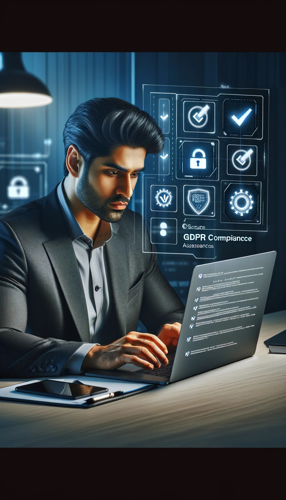
For Data Protection Act 2018 Adherence:
- Data Protection Impact Assessments (DPIA): Services to help Energy and utility providers conduct assessments that evaluate the impact of new projects or technologies on the privacy and security of personal data.(Learn More)
- Data Governance Consulting: Expert consultancy to ensure the correct handling of personal data across all operations, aligning with the Data Protection Act’s provisions.

For PCI-DSS Compliance:
- PCI-ASV (Approved Scanning Vendor) Services: ProCheckup, a globally recognized ASV, conducts meticulous external vulnerability scans to ensure the integrity of systems handling credit card data, in compliance with PCI-DSS requirement 11.3.2. Our ASV scan solution leverages cutting-edge security tools to rigorously test and confirm your network's defenses against known threats, helping to secure your data transactions. (Learn More)
- PCI-QSA (Qualified Security Assessor) Services: As an independent QSA firm accredited by the PCI Security Standards Council, ProCheckup embodies excellence in ensuring entities meet the stringent standards of PCI DSS. Our longstanding expertise, since the establishment of the QSA program, provides reliable validation of your compliance posture. (Learn More)
- Penetration Testing: ProCheckup's penetration testing services are an embodiment of our commitment to security excellence, meeting PCI-DSS requirement 11.4.1. Our team of Crest, Cyberscheme, and NCSC-qualified penetration testers, with a proven 24-year track record since 1999, employs a comprehensive approach to identify and remediate exploitable security vulnerabilities. (Learn More)
- Data Discovery for Primary Account Number (PAN): Our specialized services extend to the detection of PAN within your network, particularly identifying unauthorized storage locations outside the Cardholder Data Environment (CDE), adhering to PCI-DSS requirement 12.5.2. ProCheckup ensures that sensitive payment data is contained and managed securely. (Learn More)
- Segmentation Testing: With precise technical testing, ProCheckUp validates the efficacy of network segmentation, ensuring that the CDE is isolated from all systems not pertinent to card processing , in compliance with PCI-DSS requirement 11.4.5 This critical service supports PCI-DSS compliance by verifying the robustness of segmentation controls, maintaining the security of your cardholder data environment. (Learn More)
- Wireless Testing: Adhering to the stringent standards of PCI-DSS requirement 11.2.1, our team conducts comprehensive wireless testing quarterly. This process is meticulously designed to uncover and assess both sanctioned and unsanctioned wireless access points within your network, ensuring a robust security posture. (Learn More)

For Mitigating Supply Chain Vulnerabilities:
- In the current digital landscape, the inter-connectivity with suppliers and partners significantly widens the scope of potential threats. Our comprehensive Supply Chain Testing service is designed to empower businesses to identify, comprehend, and mitigate the myriad risks that stem from third-party collaborations. (Learn More)
For Combating Phishing and Social Engineering:
- The human element often presents the most significant security risk. Phishing and social engineering attacks are deceptively designed to exploit this vulnerability by manipulating individuals into divulging sensitive information or providing unauthorized access. Our proactive approach begins with in-depth Open Source Intelligence (OSINT) gathering to construct a credible pretext. We then conduct simulated phishing expeditions using realistic scenarios that mirror actual threats, thereby training your workforce to recognize and counteract such deceptive tactics effectively.(Learn More)
For Securing the Internet of Things (IoT):
- The Energy and utility provider's growing reliance on IoT devices for inventory management and enhanced customer experiences brings with it an urgent need for robust security measures. Our IoT Security Reviews are at the cutting edge, aligning with the rapid pace of digital transformation.(Learn More)
Maintaining compliance with these regulations is crucial for the energy and utility sector not just for legal integrity but also for maintaining customer trust. The assurance that Energy and utility providers are following stringent cyber-security practices can be a significant competitive advantage. Compliance ensures operational resilience, reduces the risk of financial penalties, and enhances customer confidence in the manufacturer.
For businesses in the energy and utility sector, this means implementing robust cyber-security policies, continuously educating staff about security best practices, and regularly reviewing and updating security measures to address new and emerging threats.
Practical Implementation Strategies for Cyber-security for the energy and utility sector:
As the energy and utilities sector evolves, adopting smart grid technologies and IoT innovations, cyber-security measures must not only be reactive but also predictive and proactive. Integrating artificial intelligence and machine learning for real-time threat detection and predictive analytics can provide the foresight needed to pre-empt cyber attacks. Furthermore, establishing incident response protocols and recovery plans can significantly reduce downtime and mitigate the impact of breaches.
Enhanced Operational Technology (OT) Security:
- For energy and utilities companies, securing Operational Technology (OT) is as critical as IT security. Cyber attacks on OT systems can have direct physical consequences. A strategic approach involves regular security assessments, segmentation of IT and OT networks, and controlled access to OT environments.
Resilience Against Advanced Persistent Threats (APTs):
- The sector is often the target of APTs due to its critical infrastructure status. Building resilience against such threats entails a layered security approach, continuous monitoring, and threat intelligence sharing among industry stakeholders.
Visual Representation of Compliance
Energy and utility provider's should aim to visualize their compliance journey, allowing for transparent communication with stakeholders about their cyber-security posture. This can be done through:
- Infographics: Showing compliance roadmaps, certification processes, and security control implementations.
- Dashboards: Real-time monitoring of network health, threat detection, and security incident responses.
- Educational Content: Simplified explanations of regulations and requirements for employees and clients through engaging multimedia.
Cybersecurity Culture in the energy and utility sector
Building a strong cyber-security culture within the energy and utility sector involves:
- Training and Awareness: Regularly scheduled training sessions for employees to recognize threats and understand protocols.
- Incident Response Drills: Simulated cyber-attacks to prepare the workforce for real incidents, ensuring a swift and effective response.
- Employee Engagement: Encouraging employees to take an active role in cyber-security, reporting anomalies and suggesting improvements.
Future-Proofing with Cyber-security
As the energy and utility sector continues to evolve, staying ahead in cyber-security means:
- Innovative Defense Strategies: Adopting AI and machine learning for predictive threat detection and adaptive security measures.
- Investment in R&D: Committing resources to explore new cyber-security technologies and practices that can better protect manufacturing environments.
- Strategic Partnerships: Collaborating with cyber-security firms and participating in industry-wide security initiatives to benefit from shared knowledge and resources.
Creating a Cyber-Resilient Manufacturing Ecosystem
A comprehensive cyber-security strategy in the energy and utility sector should focus on resilience, ensuring that operations can withstand and recover from cyber incidents:
- Redundancy and Fail-safes: Implementing backup systems and processes that can take over in case of a cyber incident to minimize downtime.
- Regular Audits and Assessments: Conducting internal and external cybersecurity assessments to validate and improve security measures.
- Supply Chain Security: Extending cyber-security practices to the supply chain, requiring partners and vendors to meet specified security standards.
Vendor and Third-Party Management:
- Establish strict security criteria for vendors and third-party service providers.
- Regularly assess third-party risks and ensure external partners adhere to the same security standards required of the energy and utility provider itself.
Customer Data Rights and Transparency:
- Clearly communicate to customers how their data is being used, stored, and protected.
- Develop simple and efficient procedures for customers to exercise their rights under the UK-GDPR, such as accessing their data or requesting deletion.
Conclusion and Call to Action
In closing, the cyber-security landscape for the UK energy and utility sector is complex but navigable with the right knowledge and tools. Energy and utility sector providers are encouraged to:
- Assess their Current Posture: Taking stock of current cyber-security measures and identifying gaps.
- Seek Expert Guidance: Consulting with cyber-security experts to develop and implement a comprehensive strategy.
- Stay Informed and Compliant: Keeping up-to-date with the latest regulations and cyber-security best practices.
Energy and utility providers who prioritize cyber-security will not only protect their operations and reputation but also gain a competitive edge in an increasingly digital and connected industry.

Cybersecurity Process Flow Chart
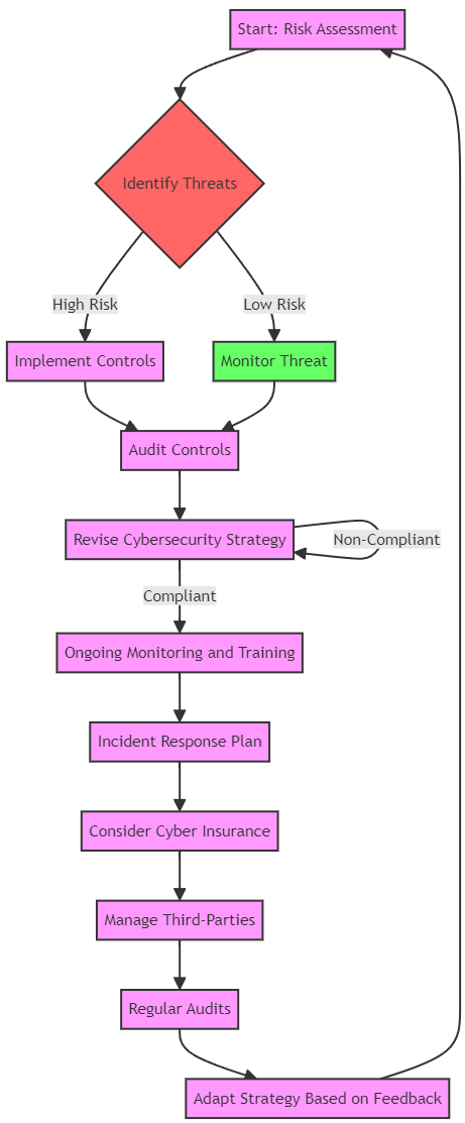
Cybersecurity Collaboration and Sharing
In addition to the internal measures, it is crucial for energy and utility providers to actively participate in sector-wide cyber-security initiatives. These include:
- Information Sharing: Engaging in information sharing platforms to receive timely alerts on threats and share best practices with industry peers.
- Regulatory Engagement: Maintaining an open dialogue with regulators to stay ahead of new regulations and to influence policy development with real-world insights.
- Global Cybersecurity Standards: Aligning with global cyber-security standards and frameworks, such as ISO/IEC 27001, to ensure a consistent approach to managing information security.
- Cybersecurity Advocacy: Advocating for stronger cyber-security measures and more substantial investments in cyber-security at industry conferences and in public forums.

With these resources and strategies in place, energy and utility organisations can better anticipate and counteract the evolving cyber threats they face, ensuring trust and continuity in the digital age.
For More Information Please Contact Us

ACCREDITATIONS

